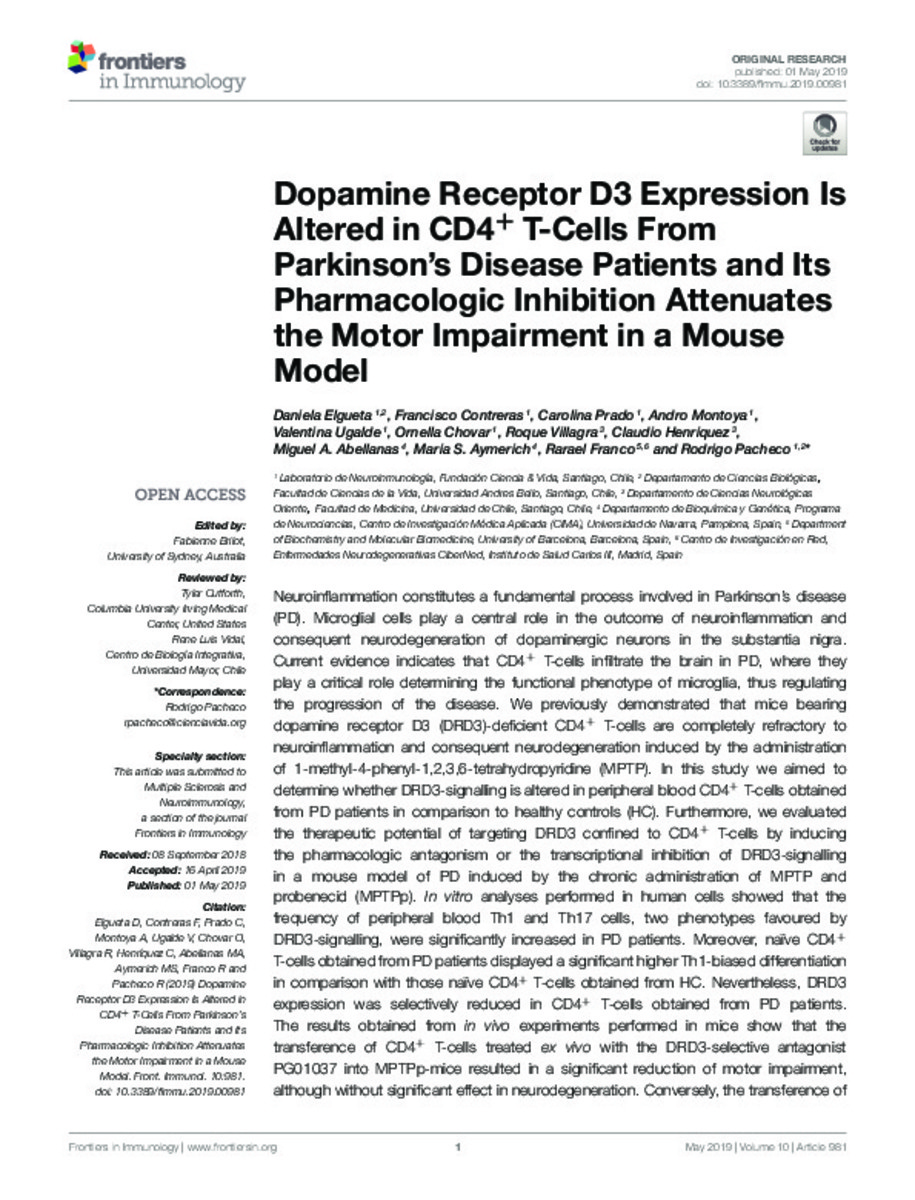Dopamine receptor D3 expression is altered in CD4(+) T-cells from parkinson's disease patients and its pharmacologic inhibition attenuates the motor impairment in a mouse model
Keywords:
Neuroinflammation
Neurodegeneration
Parkinson's disease patients
MPTP mouse model
Dopamine receptors
CD4+T-cells
Note:
This is an open-access article distributed under the terms of the Creative Commons Attribution License (CC BY)
Citation:
Pacheco, R.; Franco, F.; Aymerich-Soler, M. (María Soledad); et al. "Dopamine receptor D3 expression is altered in CD4(+) T-cells from parkinson's disease patients and its pharmacologic inhibition attenuates the motor impairment in a mouse model". Frontiers in immunology. 10, 2019, 981
Statistics and impact
0 citas en

0 citas en

Items in Dadun are protected by copyright, with all rights reserved, unless otherwise indicated.










